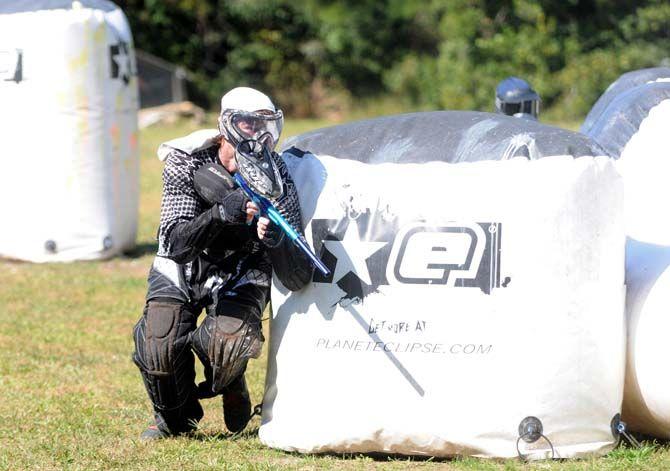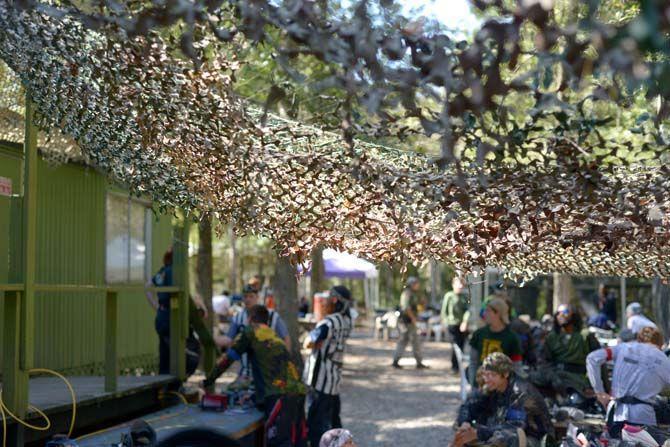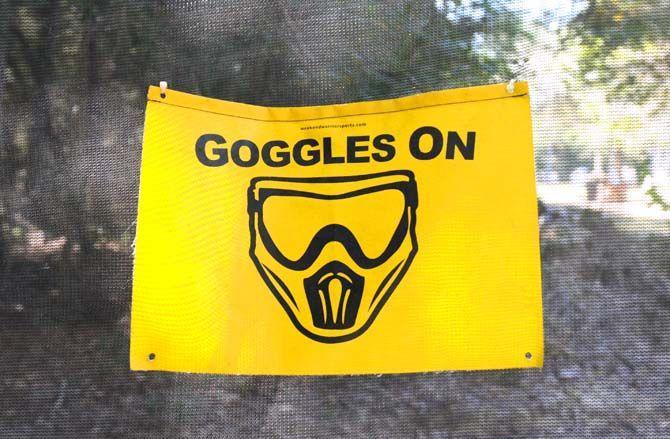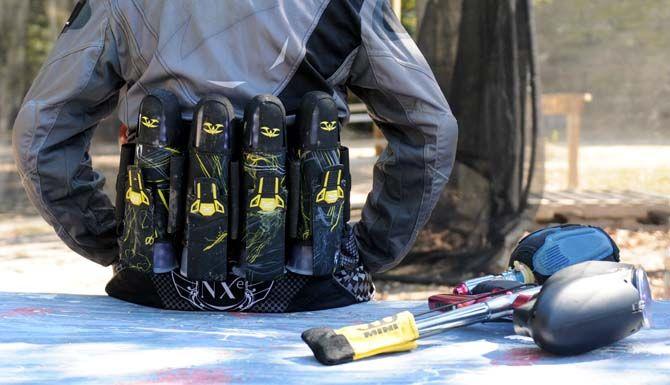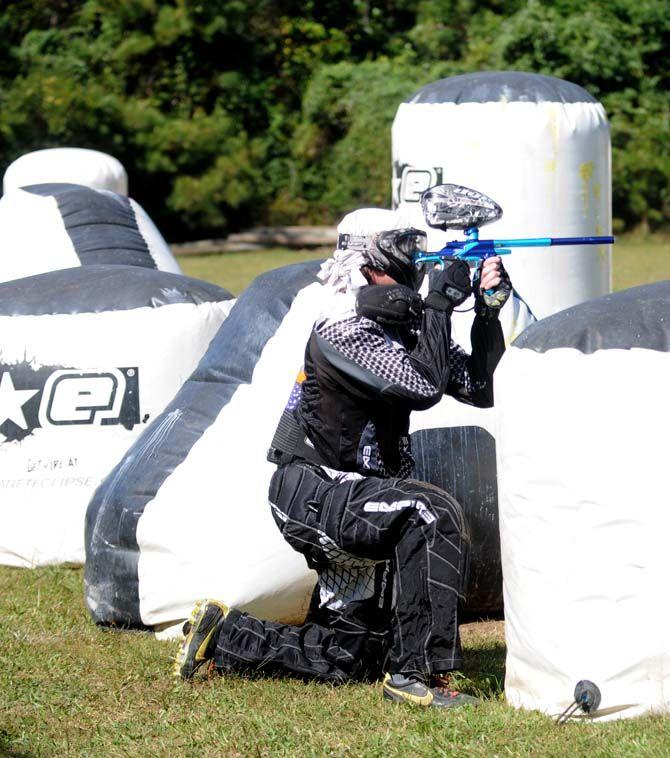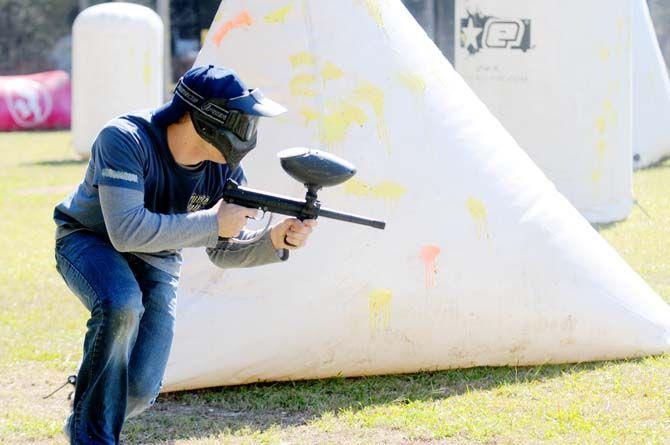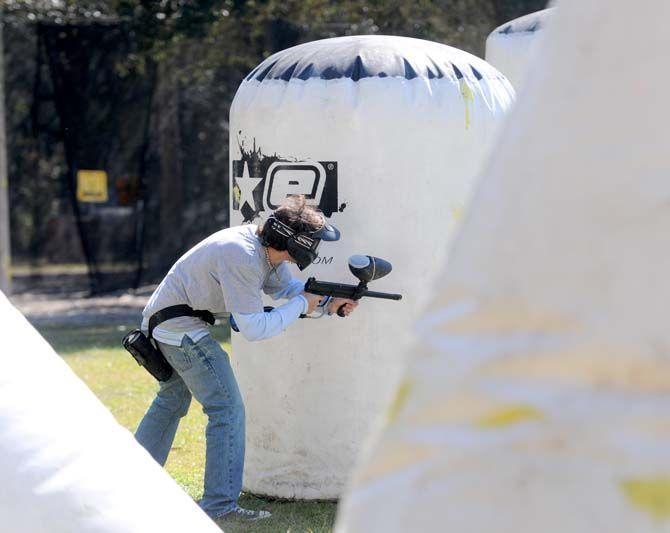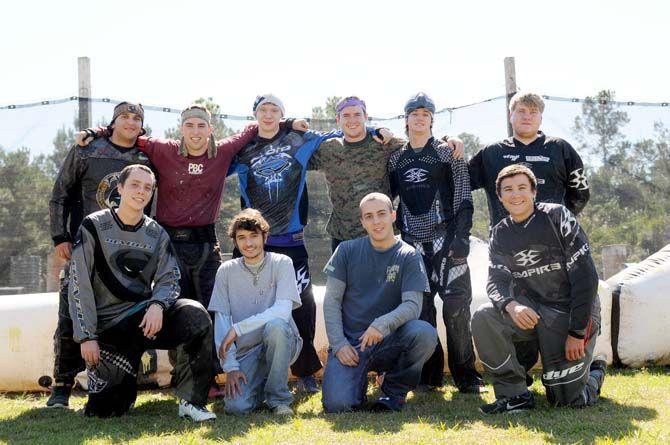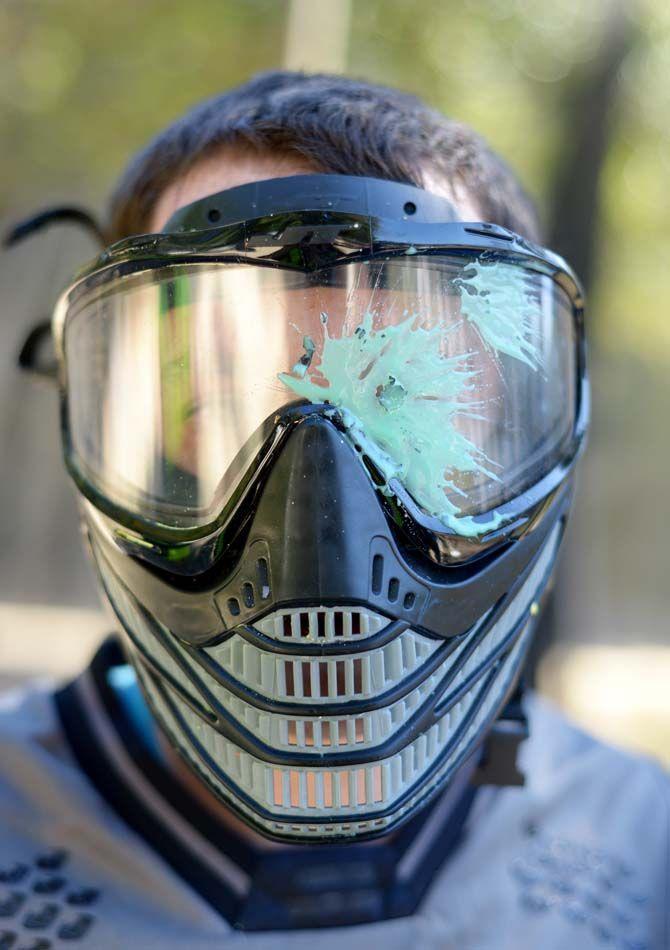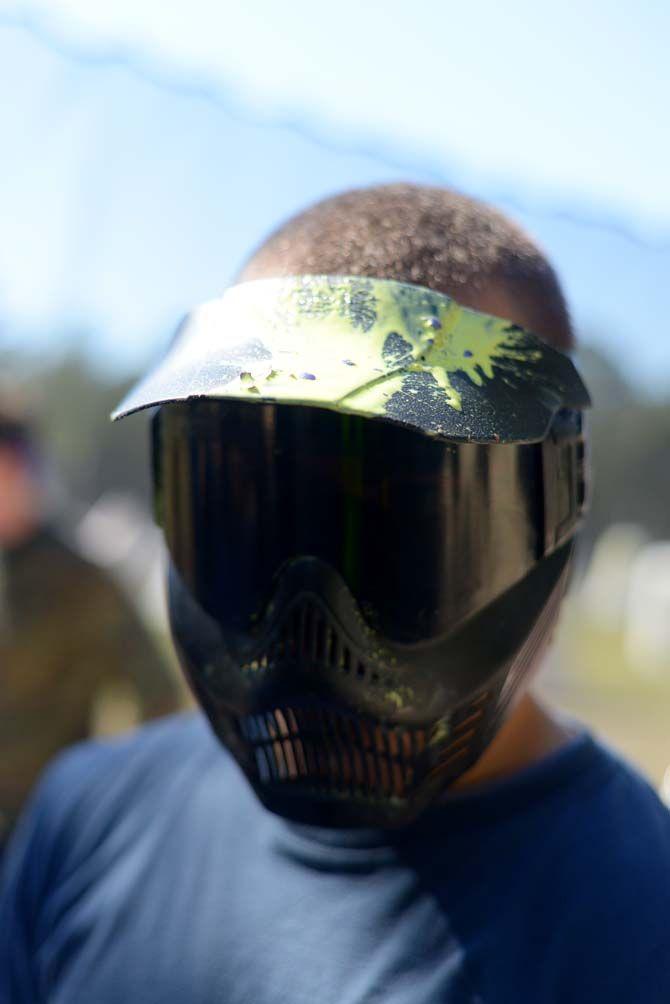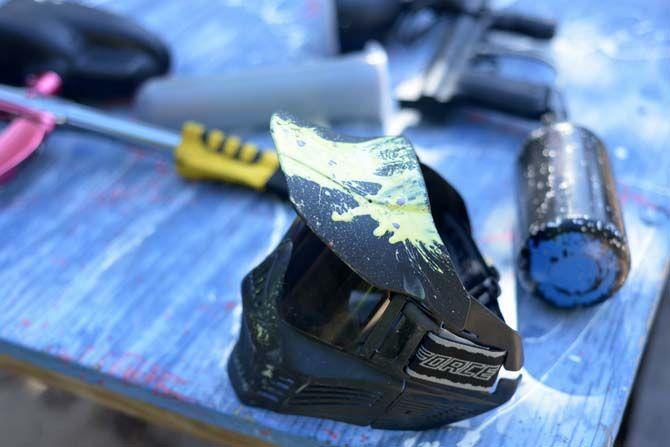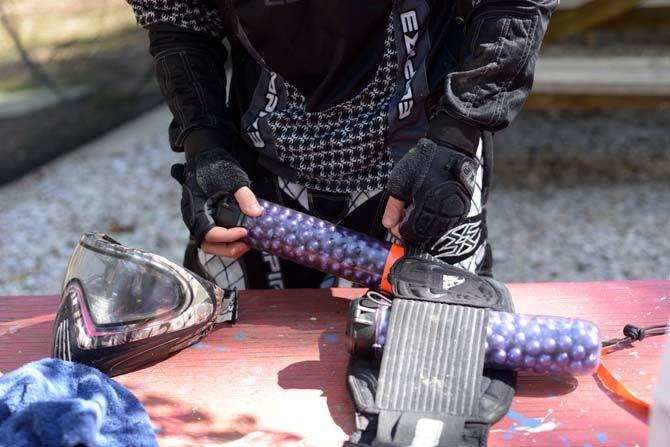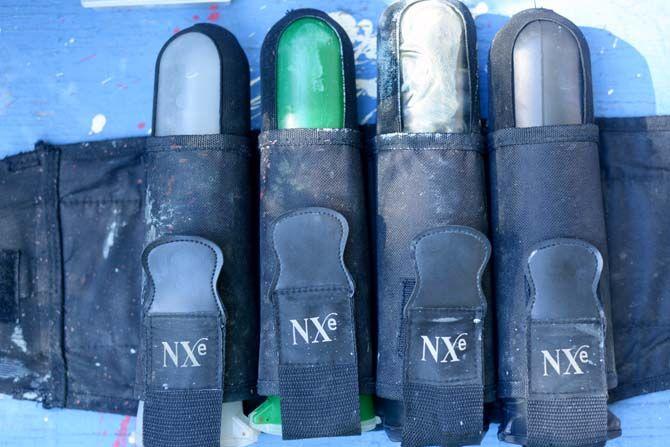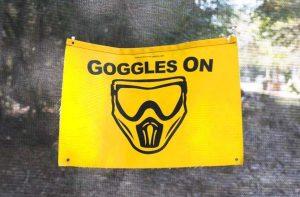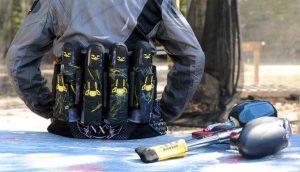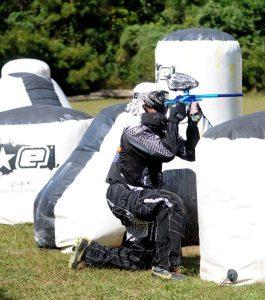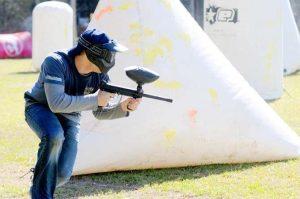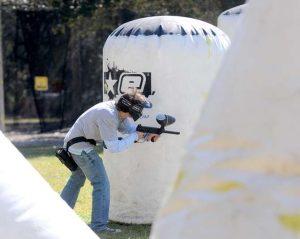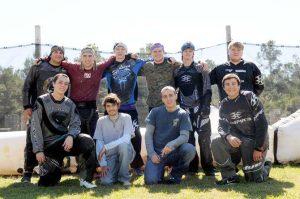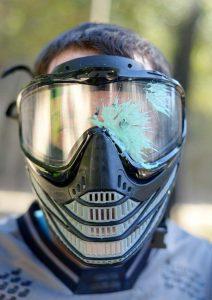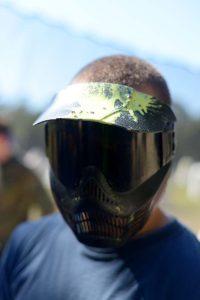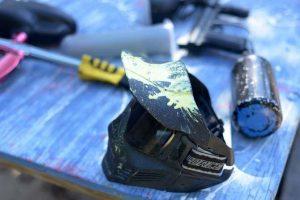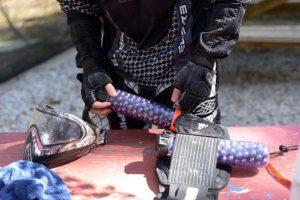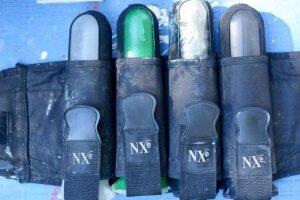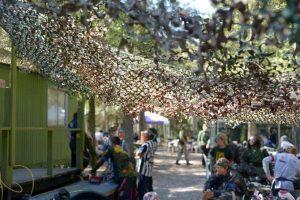After the air horn blows, thousands of empty paintball shells rest on the ground of Paintball Command after flying about 200 miles per hour. Bodies covered in paint and welts walk off of the speedball field to reload paintball markers and air tanks.
They return to the field, split the club in half and take their positions. The countdown from five seconds begins, and as “go” echoes across the field, 13 balls per second zoom from one side to the other in what is a regular day for one of the University’s newest clubs, Tiger Paintball.
Paintball commonly is thought to be a simple game in which people shoot paintballs at one another until they are hit and eliminated. From the outside perspective, this is valid, but there is a level of competition and professionalism that accompanies the sport.
A previous club at LSU, The Paintball Club, existed until 2008. The club competed in the National Collegiate Paintball Association, placing in a few events throughout its tenure. After most of the members graduated, the club became inactive.
This year, computer science junior and Tiger Paintball president Andrew Vogel decided it was time for a new paintball club under a new name and with new goals.
When he first came to LSU in 2012, Vogel began looking for people to play competitive paintball through forums, but he soon forgot about his desire to play while adjusting to the college lifestyle. This year he received a few messages from people who wanted to play, which reignited his passion, and he began the long process of getting the club recognized.
“We filled out so much paperwork in the beginning,” Vogel said. “The hardest part was getting a staff sponsor.”
University rules require a faculty member to sponsor any club and its activities. Vogel said explaining the depth of a sport like paintball to a tenured professor was a tough order. He’d finally found a sponsor when he then faced an even harder task — assembling an actual club.
He began hitting the forums again, searching for people who would take the club seriously. People slowly began to reach out to Vogel, creating the current 20- person roster. The members vary in levels of expertise but share a common goal of creating the foundation for a successful club and being ready to compete in next year’s collegiate season.
The club travels every other weekend to practice at Paintball Command in Mandeville, Louisiana. Communication in club sports is vital, so the members carpool together to continue learning about one another.
“We could come out here and just practice, but we actually spend time getting to know each other,” Vogel said.
Once arriving at Paintball Command, the members purchase their paintballs, rent gear or parts for their markers if needed and proceed to the speedball field.
There are three distinct game variants in paintball — speedball, woodsball and scenario ball.
In speedball, the field is covered in evenly disbursed inflatable bunkers that players hide behind while trying to advance and take out the other club’s players. Clubs can play to a set amount of points or a time limit. Speedball is the most common paintball event and the most played in the collegiate circuit.
Member of Tiger Paintball and chemistry junior Chris Aguirre has competed in professional events before and believes the club has potential to become a serious competitor given more practice and understanding of the sport.
“We’ve found some people who I can really trust and are growing really fast,” Aguirre said. “We can compete as long as we have a handful of dedicated players.”
Vogel compares paintball to other University sports like ultimate frisbee, equestrian and quidditch. These communities are small groups of people who came together for a sport they enjoy. Over time, these sports have become recognized and respected on campus, and Vogel hopes the same will result for Tiger Paintball.
“People don’t know the sports side of paintball,” Vogel said. “We’re here to stay and put LSU on the map.”
Now that the club has taken care of its formal paperwork, Vogel has turned his focus to fostering relationships with businesses that will sponsor the club. Paintball Command has already agreed to work with Tiger Paintball to get special deals for playing at their field so regularly. The club also has a great rapport with apparel and equipment company Empire Paintball.
A solid paintball setup, which includes markers, loaders, protective masks and carbon dioxide tanks, can easily cost more than $700. Some members of Tiger Paintball have spent more than $1,000 in gear just for themselves. The purchase of paintballs itself can add up to more than $200 for a day’s worth.
Despite the hefty expenses, the club is dedicated to bettering itself. Many of the members agreed that the amount of money isn’t comparable to the amount of fun they are having.
“I feel better after a day of paintball than I do any day at the gym,” Vogel said.
Studies from the National Injury Information Clearinghouse of the U.S. Consumer Product Safety Commission shows that paintball is the safest sport.
Masks are always worn when a player is on a paintball field, and the barrels are covered when not in use preventing eye injuries. The masks are designed to withstand paintballs traveling 300 feet per second. Shots fired from within 20 feet of an opponent are prohibited as well. When an opponent has a clear shot on a player from under 20 feet, the player must surrender.
“This isn’t a hobby,” Aguirre said. “It’s a sport unlike any other and its treated as such.”
The club will continue to practice in preparation for the upcoming season. Vogel said he hopes the countless hours the club has put in won’t go to waste after he and the current members graduate.
“As as we recruit the right people, paintball can become a big thing at LSU,” Vogel said. “When people see how competitive we can be, it’ll all come together.”
You can reach Joshua Jackson on Twitter @Joshua_Jackson_.
Paintball club prepares for competition
October 20, 2014
Team member of LSU’s Tiger Paintball, Brett Taliaferro, crouches behind an inflatable wall in a round of speedball at Paintball Command in Mandeville Sunday, October 19, 2014.


